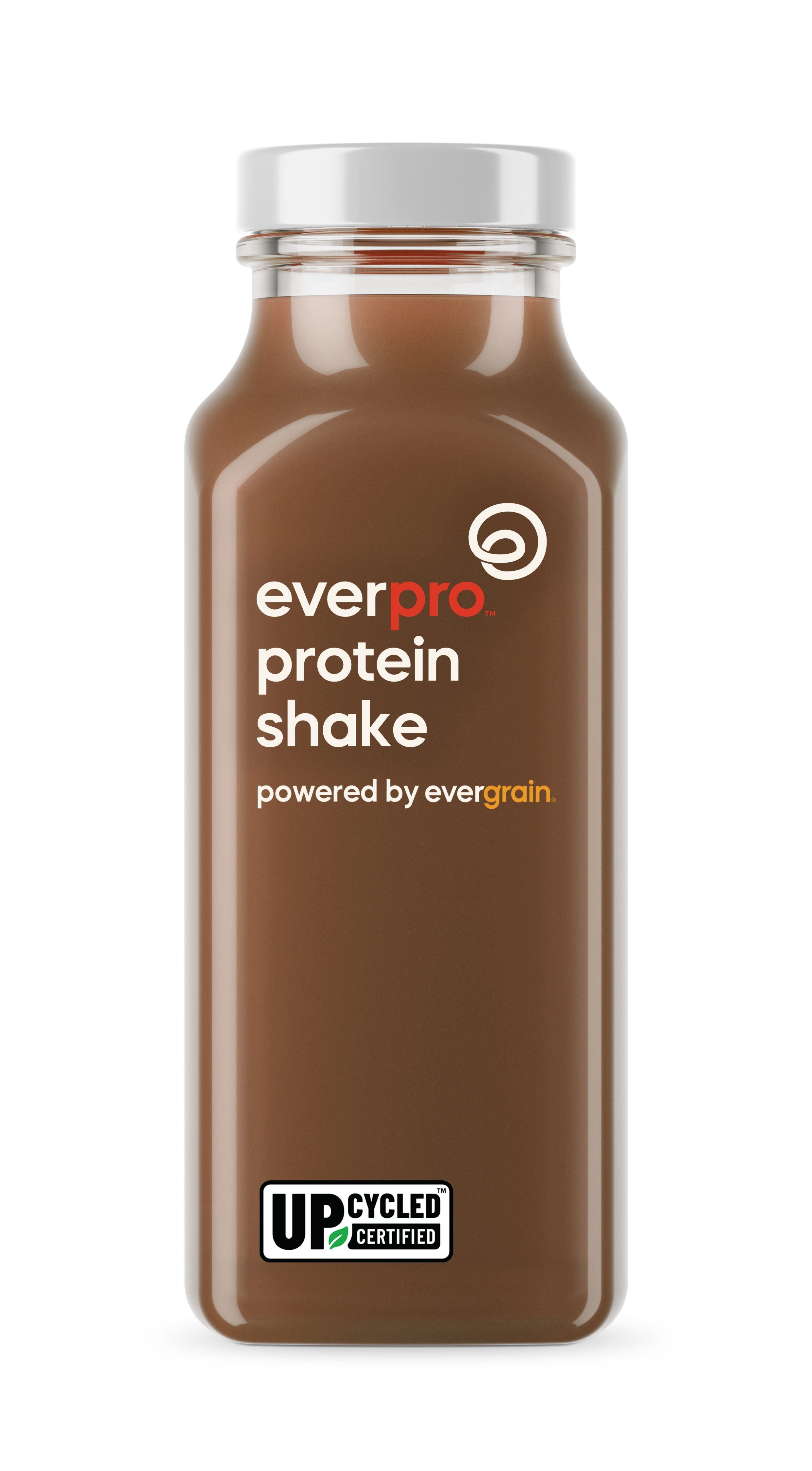EverGrain’s upcycled barley protein and fiber ingredients now certified by Upcycled Food Association
EverGrain’s barley protein and fiber ingredients are repurposed from “spent,” or saved, barley during the beer-brewing process.
Prototype of a package featuring EverPro's branding and Upcycled Food Association certification mark. Photo from EverGrain.

EverGrain (St. Louis), the ingredients firm created by brewing company AB InBev last year, announced that its entire portfolio of upcycled barley protein and fiber ingredients is now certified by the Upcycled Food Association (UFA). This certification program, introduced last year, calls itself “the world’s first third-party certification program for upcycled food ingredients and products.”
EverGrain’s barley protein and fiber ingredients are repurposed from “spent,” or saved, barley during the brewing process. “As the world’s largest brewing company, AB InBev depends on high-quality barley from thriving communities and healthy ecosystems to brew our beers. Every year, 1.4 million metric tons are left over, or ‘spent,’ through the brewing process,” said Ties Soeters, EverGrain’s chief product owner, in a press release. “Given the global scale, protein quality, and market advantage, the team at EverGrain saw a unique opportunity to unleash the power of upcycled nutrition to meet the increasing global demand for plant-based products.”
The company began its upcycling efforts in 2013. Fast-forward, and this summer, the company will bring online a facility in St. Louis devoted to producing EverPro, “a soluble plant-based protein that is highly compatible with pea protein.” EverGrain says its plant-based protein and fiber ingredients may also be used in meat alternatives, breads, and pastas.
Food and drink manufacturers using EverGrain’s ingredients can now tout the UFA certification mark on their packaging. EverGrain’s ingredient can already be found in some finished products on the market, such as Take Two, an Upcycled Certified barley milk.

.png&w=3840&q=75)

.png&w=3840&q=75)



.png&w=3840&q=75)



.png&w=3840&q=75)









